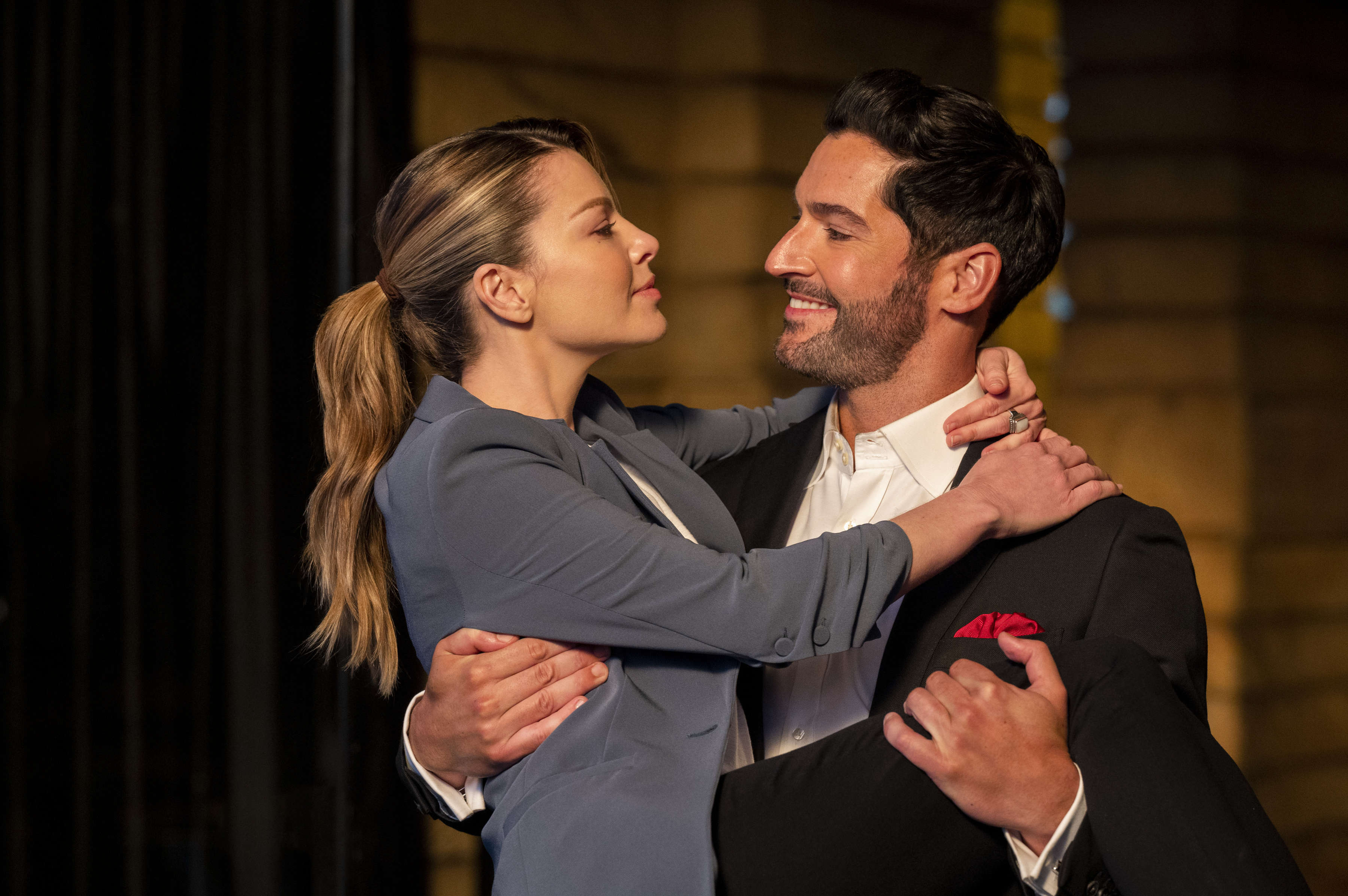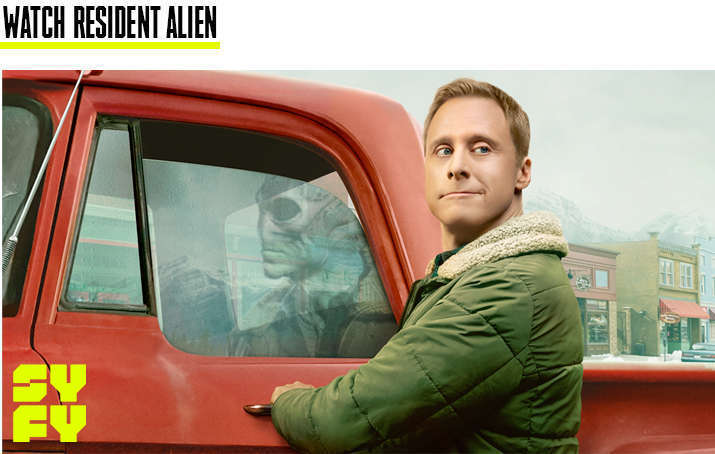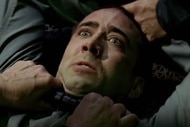Create a free profile to get unlimited access to exclusive videos, sweepstakes, and more!
Lucifer series finale: Tom Ellis on redeeming the 'most irredeemable character' ever

For six seasons now Lucifer has been in search of his true purpose, even leaving Hell and all his responsibilities there to spend time on Earth helping solve crimes. In the process, he’s been able to reconnect with various members of his celestial family — including his Heavenly Father — and found the love of his life in the form of Detective Chloe Decker.
**SPOILER WARNING: Beware! Spoilers below for Lucifer's series finale!**
However, with the Netflix series finally coming to a close, he finally gets some answers as to where he’s meant to be — and it’s all the way back in Hell, helping counsel and rehabilitate the people who find themselves down there, and helping them find a path to Heaven. After all, if Satan himself can be redeemed, shouldn’t humans be given a fair shot?
"It felt like the right final chapter. The theme of the entire show is redemption and forgiveness," Executive producer Ildy Modrovich explains to SYFY WIRE. "My analogy is when you learn a language, you can understand it maybe, but to speak it is a whole other thing. So that was the final step in Lucifer’s evolution. To actually impart this journey and to embrace the fact that he knows what it’s like to feel evil and to feel unworthy and not salvageable. Who better to talk to these damned souls than the Fallen One?"
And if his office down in Hell looks a bit familiar, that’s because it is. According to executive producer Joe Henderson, Lucifer was directly inspired by his own time in therapy back on Earth. "It is Dr. Linda’s office basically. He just recreated it."
Actor Tom Ellis, who plays the titular devil, loves the ending and what it means for Lucifer, who’s come a long way from where he first started.
"For me, it’s always been about the most irredeemable character being on the path to redemption," says Ellis. "When we first started the show I thought: 'How does it end? Does it end with him becoming God? Or does it end with him actually learning something from this journey?' Because that’s what people always talk about. It’s the destination, not the journey. So for him to realize that at the end, that his true calling is what he wasn’t doing in the first place, [and to go] back to readjust and make Hell a better place using what he’s learned on Earth from humans to inform that. I love that as a notion."
Of course, that’s not the only place Lucifer gets closure. He and Chloe also discover that they’re the future parents of an angel named Rory (Deadpool 2’s Brianna Hildebrand), who accidentally self-actualizes herself into the past. However, much to Lucifer’s dismay, he learns that choosing to go back to Hell means he isn’t present for much of Rory’s early life, technically abandoning her in very much the same way he felt he’d been abandoned by his own father.
"The end of Lucifer’s arc was to flip the script and to make him the father to somebody who felt hurt," says Modrovich. "And to see him battle the guilt of those feelings and how it feels to be the one who unintentionally hurt your child. In his dad’s case, he thought he was doing the best for his kids, but in this case, he unintentionally caused this pain, but still caused it. So we just wanted to see Lucifer get to that endpoint of final selflessness and that’s what we got from the relationship with him and Rory."
This sacrifice repeats another pattern in Chloe’s life, as she’s now raising two daughters who’ve lost their dads — not unlike when she was a child herself. "That was a big thing we wanted to hit," Henderson says. "The idea of sins repeating themselves or children replicating their [parents’] lives."
Both Rory and Trixie do eventually get to make peace with their fathers, even though in Trixie’s case, it’s because she’s (unknowingly) talking to an escaped killer being possessed by her father’s spirit, as he’s been stuck in purgatory and unable to make it into heaven because he’s been feeling guilty about abandoning her.
"That’s the trick about guilt. Sometimes you don’t know what’s causing it," Modrovich says of the moment that finally saw Dan ascend. "So when Trixie said to him, 'How dare you? My dad is the best father a girl could ever ask for,' that was a release, because Dan feels like he left her, even though it wasn’t his fault… And it’s not just that he died. He obviously couldn’t control that, but it’s also that he didn’t feel like he became the role model that he wanted to be for her. So when she says ‘Oh, he was,’ that’s such a relief for him."
Lucifer and Rory aren’t the only ones making this big sacrifice; Chloe is also giving up being with the person she loves and the father of her future child, meaning she’ll have to go through many significant milestones as a parent without him, while she stays on Earth to raise both her daughters. She also continues to serve as a detective in the LAPD, which is what she eventually realizes has been her true calling, having given it up briefly in this season. It isn’t until she finally passes that she’s finally reunited with Lucifer, going to visit him in his Hell-ish new office.
"One of the sacrifices is saying goodbye to him because really Chloe does have some options there," says Lauren German, who plays Chloe. "She knows that down the road, she will end up with Lucifer. She knows that she’s mortal and will pass at some point. So the notion that she’ll get to see the love of her life when she does pass one day is a glimmer of hope."
She continues, "But the fact that she stays and is a mother to Rory and Trixie is a sacrifice, but it’s well worth it, and it makes the stakes at the end when she does see him so much better than glossing over it with a perfect, 'Oh they’re together.' They both gave up a lot."
One of the things Rory’s introduction allows the show to do is to give fans a glimpse of what Lucifer and Chloe’s family could be like, should they have a child.
"We both wanted a happy ending, but we also wanted there to be a heroic, heartfelt sacrifice," Henderson says. "Their love is strong enough to survive that. That’s an important thing to us because so much of the show is about that romance. But how do you know just how pure and true that love is? The fact that both of them had a calling that was at odds, and then decided, ‘Well, I’ll see you soon-ish. You live your life, I’ll live mine, and then we’ll be together forever.’ That was really important for us because we also wanted Chloe and Lucifer to be their own people. She’s got an important job to do on Earth, and he’s got an important job to do in Hell, and neither are going to sacrifice for each other, but they will be together, eventually, forever."
In the years since Lucifer premiered, there have been other shows that tackle heaven and hell, most notably, The Good Place, which also arrived at a similar conclusion: that this system is too binary and that angels, demons, and humans alike all deserve the chance to be redeemed.
"The Good Place is awesome," says Henderson, who watched the NBC sitcom to ensure both series didn't overlap too much. "That's why I got the 'forking' joke into the Season 5 finale. That was our little ode to the other show about Heaven and Hell. Honestly, this was just the story we were going to tell. But good thing is, these shows are so different that we can all tackle very similar ideas in wildly different ways. But everyone, especially in the last couple of years we've been having, has been wanting to feel that hope and that sense of people looking out for other people. And that if the Devil can be redeemed, who knows who else can be?"
All six seasons of Lucifer are now available to stream on Netflix.















